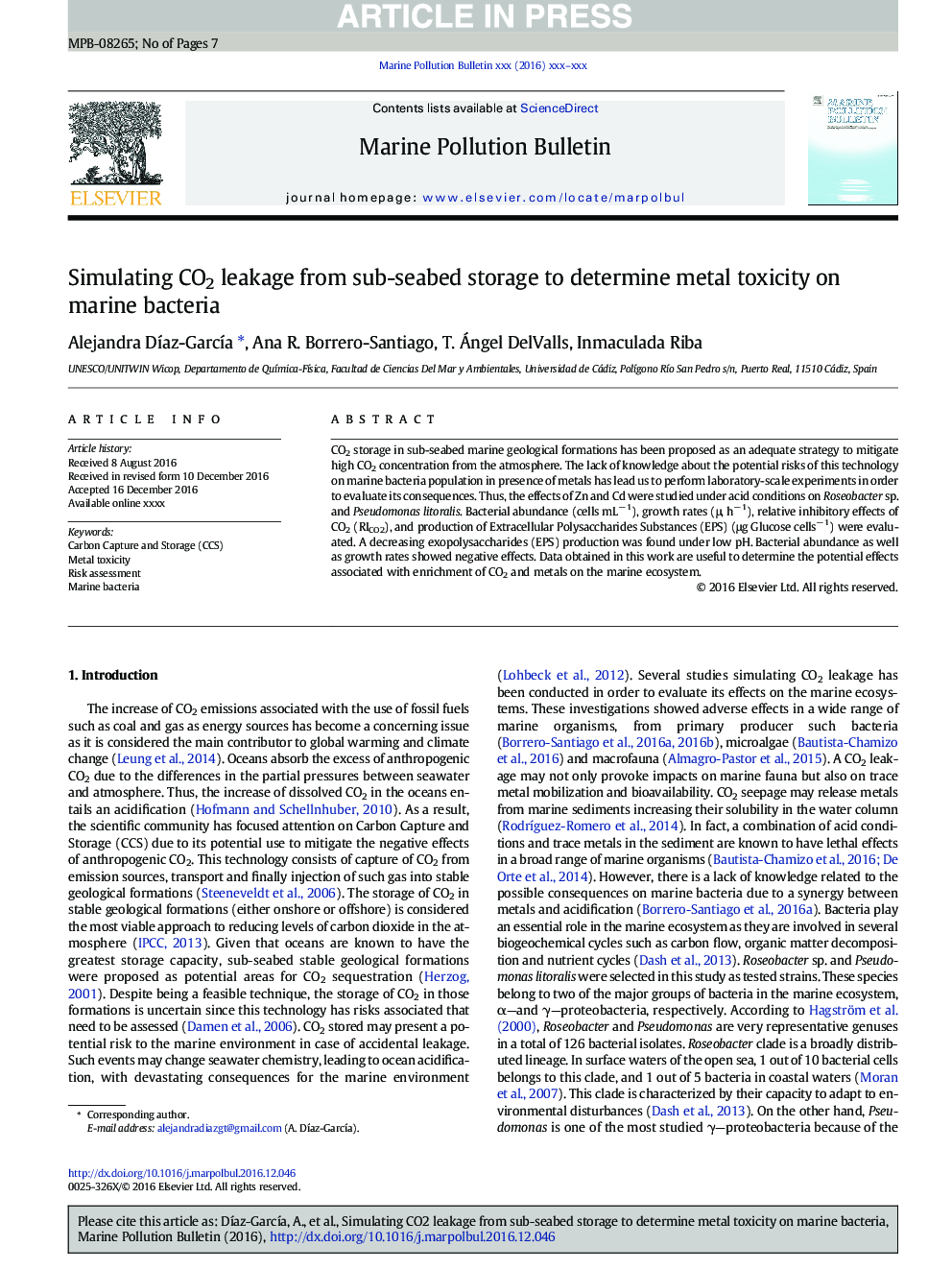| Article ID | Journal | Published Year | Pages | File Type |
|---|---|---|---|---|
| 5757584 | Marine Pollution Bulletin | 2017 | 7 Pages |
Abstract
CO2 storage in sub-seabed marine geological formations has been proposed as an adequate strategy to mitigate high CO2 concentration from the atmosphere. The lack of knowledge about the potential risks of this technology on marine bacteria population in presence of metals has lead us to perform laboratory-scale experiments in order to evaluate its consequences. Thus, the effects of Zn and Cd were studied under acid conditions on Roseobacter sp. and Pseudomonas litoralis. Bacterial abundance (cells mLâ 1), growth rates (μ, hâ 1), relative inhibitory effects of CO2 (RICO2), and production of Extracellular Polysaccharides Substances (EPS) (μg Glucose cellsâ 1) were evaluated. A decreasing exopolysaccharides (EPS) production was found under low pH. Bacterial abundance as well as growth rates showed negative effects. Data obtained in this work are useful to determine the potential effects associated with enrichment of CO2 and metals on the marine ecosystem.
Related Topics
Physical Sciences and Engineering
Earth and Planetary Sciences
Oceanography
Authors
Alejandra DÃaz-GarcÃa, Ana R. Borrero-Santiago, T. Ángel DelValls, Inmaculada Riba,
